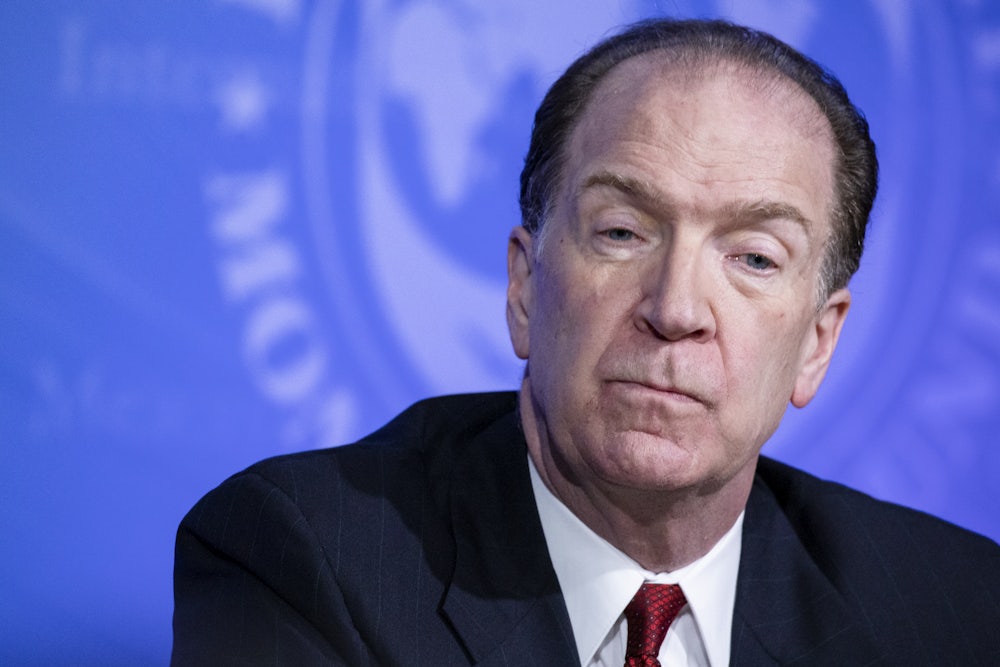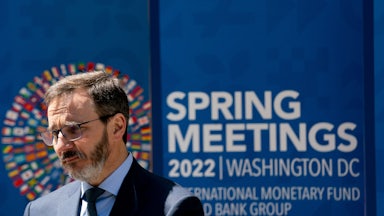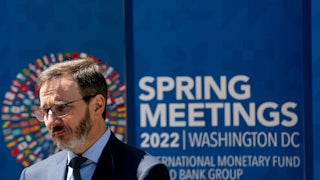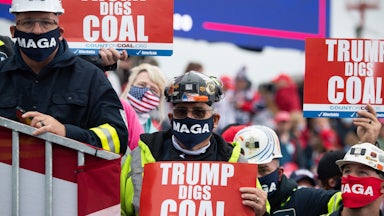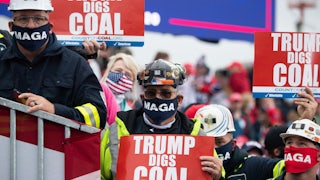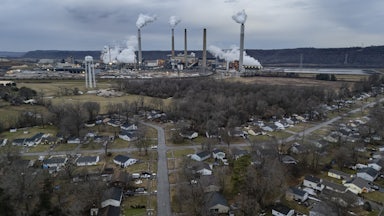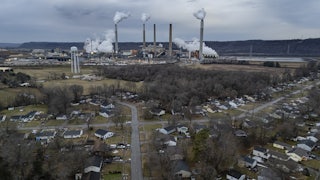David Malpass, chosen by Donald Trump to head the World Bank in 2019, has announced he will step down ahead of schedule on June 30. Though Malpass claims to have made the decision on his own, his departure follows months of controversy over his comments equivocating as to whether fossil fuels cause global warming. President Joe Biden, whose Cabinet didn’t exactly hide their distaste for Malpass, is now reportedly champing at the bit to appoint a successor. White House advisers told Axios that their pick would be someone who wants to “transform the bank into an institution dedicated to fighting climate change.”
That does raise the question, though: Why does Biden get to pick the World Bank head in the first place?
Technically, World Bank member countries appoint executive directors for the International Bank for Reconstruction and Development, or IBRD; the International Development Agency, or IDA; the International Finance Corporation, and the Multilateral Investment Guarantee Agency—generally the same people—who are then tasked with appointing a president to serve a five-year term. In practice, that job has traditionally been hand-selected by the White House, while the European Union gets to decide who helms the International Monetary Fund, or IMF. Mostly, the EU has chosen French nationals for the IMF post. Once one tenders its nomination, a “gentleman’s agreement” holds that the other will use its voting power to support the nominee.
Because voting power in each board reflects the size of a country’s economy—the shares it holds in the bank’s capital stock—higher-income nations enjoy outsize sway over decision-making. The U.S., for example, contains just over 4 percent of the world’s population but roughly 16 percent of voting power at the IBRD. Recipients of aid from the IDA account for only 15 percent of the vote in that body.
This “gentleman’s agreement” was brokered at a time when the Bretton Woods Institutions—as the World Bank and IMF are known, for the town of Bretton Woods, New Hampshire, where leaders gathered in 1944—had just 45 members; they now have 189 and 190, respectively. (Andorra belongs to the IMF but not the World Bank.) At the time, European countries retained a number of colonies. Over the following decades more than three dozen countries, mainly in Africa, gained independence. Thirty-four countries have been created since 1990, due in part to the break-ups of the Soviet Union and Yugoslavia.
Given how much the world has changed since 1944, many voices have called for a genuinely “open, merit-based, and transparent” selection process—to borrow the words the World Bank Board incongruously uses to describe its current process. So far those calls have gone unanswered. A 2011 letter from civil society groups suggested that presidential nominees should need to gain the approval of a majority of member countries, and undergo a public selection process.
The White House, meanwhile, appears unbothered by the current arrangement. The Guardian reported Thursday that one of its top contenders to lead the bank is Rockefeller Foundation president and former USAID head Rajiv Shah. Current USAID chief Samantha Power—noted fan of Henry Kissinger and just about any imaginable humanitarian intervention—is being considered, as well. So is deputy treasury secretary and former BlackRock executive Adewale “Wally” Adeyemo. Conveniently, Malpass will be out just in time for the World Bank to start officially aligning itself with the Paris Agreement. If any of the above contenders succeed him, they’ll probably have better things to say about the issue than he did. And they will probably do a better job.
That’s a pitifully low bar, though. Since the Paris Agreement was first signed, the World Bank has poured nearly $15 billion worth of direct financing into fossil fuel projects—more than any other multilateral development bank. One problem with U.S. control over bank leadership is that it threatens to align with the White House’s “all of the above” approach to climate policy, where fossil fuel financing is fine so long as it’s paired with more financing for renewables. Even when it does prioritize decarbonization, the World Bank’s preference for debt financing and subsidizing the private sector tends to make it harder to direct climate finance to where it’s most needed, loading poorer climate-vulnerable countries up with even more debt and biasing projects that can generate returns. A recent Oxfam study also found that the World Bank may have overstated the amount of climate finance it provided in 2020 by as much as 40 percent.
Malpass’s climate denial, moreover—which took the form of baffling agnosticism when he declared, “I’m not a scientist”—was just one part of a disastrous tenure that included bungling Covid-19 relief and helping compound painful debt crises throughout the global south. The issue with the World Bank’s engagement on climate has less to do with the fact that it had a climate denier at the top than with its structural inability to give most of the world a say in how it navigates a warming, crisis-ridden world. Having a World Bank president willing to spew liberal bromides is no substitute for overhauling an institution stuck in the twentieth century.
